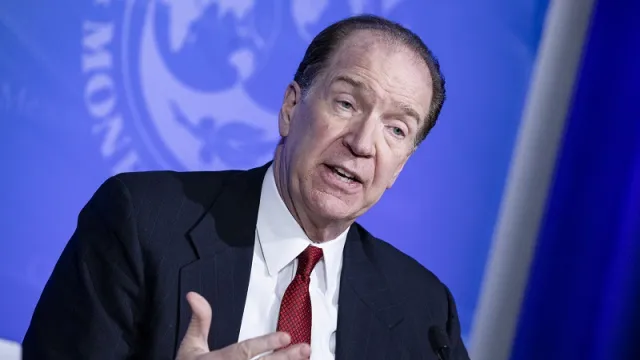World Bank calls out rich nations for delayed vaccine aid deliveries

World Bank calls out rich nations for delayed vaccine aid deliveries
The head of World Bank David Malpass has criticized wealthy nations saying they often make big announcements about their plans to give COVID-19 vaccines to lower-income countries, but the actual delivery lags far behind.
Speaking on Monday at an event hosted by the Centre for Strategic and International Studies, Mr Malpass said that donor countries complicate matters by not being transparent about which COVID-19 vaccines they are donating and when.
“Donors might announce donations and not say of which type of dose, and that makes it very hard to plan for the developing countries,” Mr Malpass said.
He added that it is critical for receiving countries to have precise dates for expected deliveries, saying the World Bank could help fund purchases and temperature-controlled supply chains, “but we have to know where and when.”
The World Bank and other global institutions are pushing donor countries to swap their vaccine delivery contracts, which have early fulfillment dates, for lower-income nations’ contracts with later dates. This could help speed up the delivery of first doses in low-income nations, while advanced economies will still have supplies ensured for the future.
Read also: COVID reduced life expectancy across the world — Study
He said deliveries to Africa lag the most, and the continent is still seeing low vaccination rates. This hurts economic recovery in low-income nations, especially amid rising inflation and debt levels.
“We don’t have a workable mechanism now to get debt relief to the poorest countries,” he said.
Mr Malpass also noted that literacy skills in low-income countries are slipping sharply because of the pandemic.
“Seventy percent of kids in low-income countries can’t read a basic story, because they’ve been kept out of school,” he said, adding that this figure was previously 55 per cent.
In Kenya, the race to vaccinate at least 10 million people by Christmas is getting tougher as the country experiences low turnout.
The ministry had set out the weekday target of 80,000 daily vaccinations by the end of September and projected the numbers to have gone up to 150,000 by end of December. However, the current daily vaccinations stand at between 60,000 and 70,000.
“Whereas this is not where we would like to be, I am glad to note that on weekends when most facilities are closed, the daily average has increased from 3,000 to 15,000. This weekend improvement is attributed to public outreaches that are being carried out,” the Health CS Mutahi Kagwe noted.
So far, 8.9 million vaccines have been received in the country and 5.6 million administered. The proportion of the adult population now fully vaccinated stands at 6.8 per cent.



